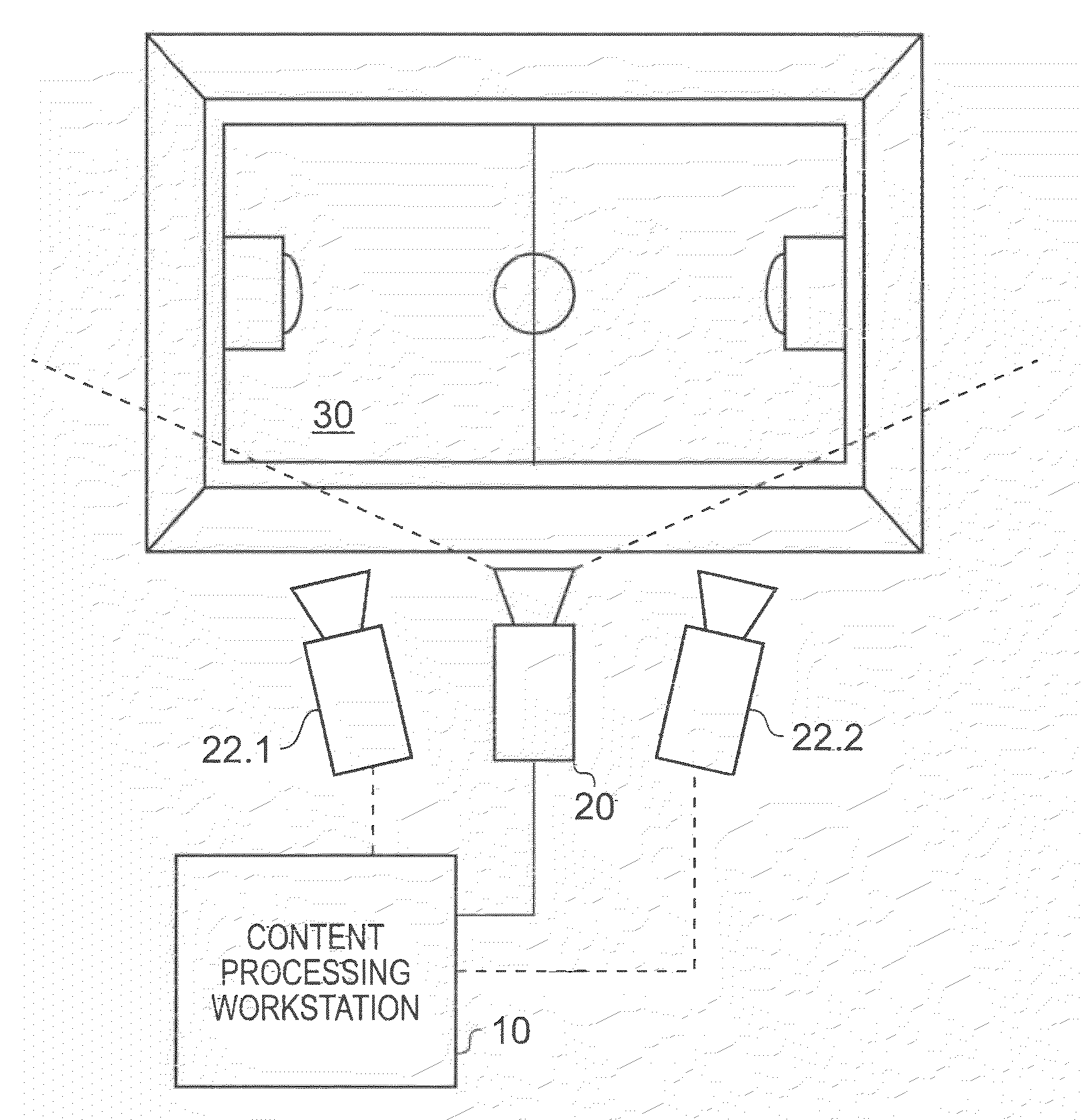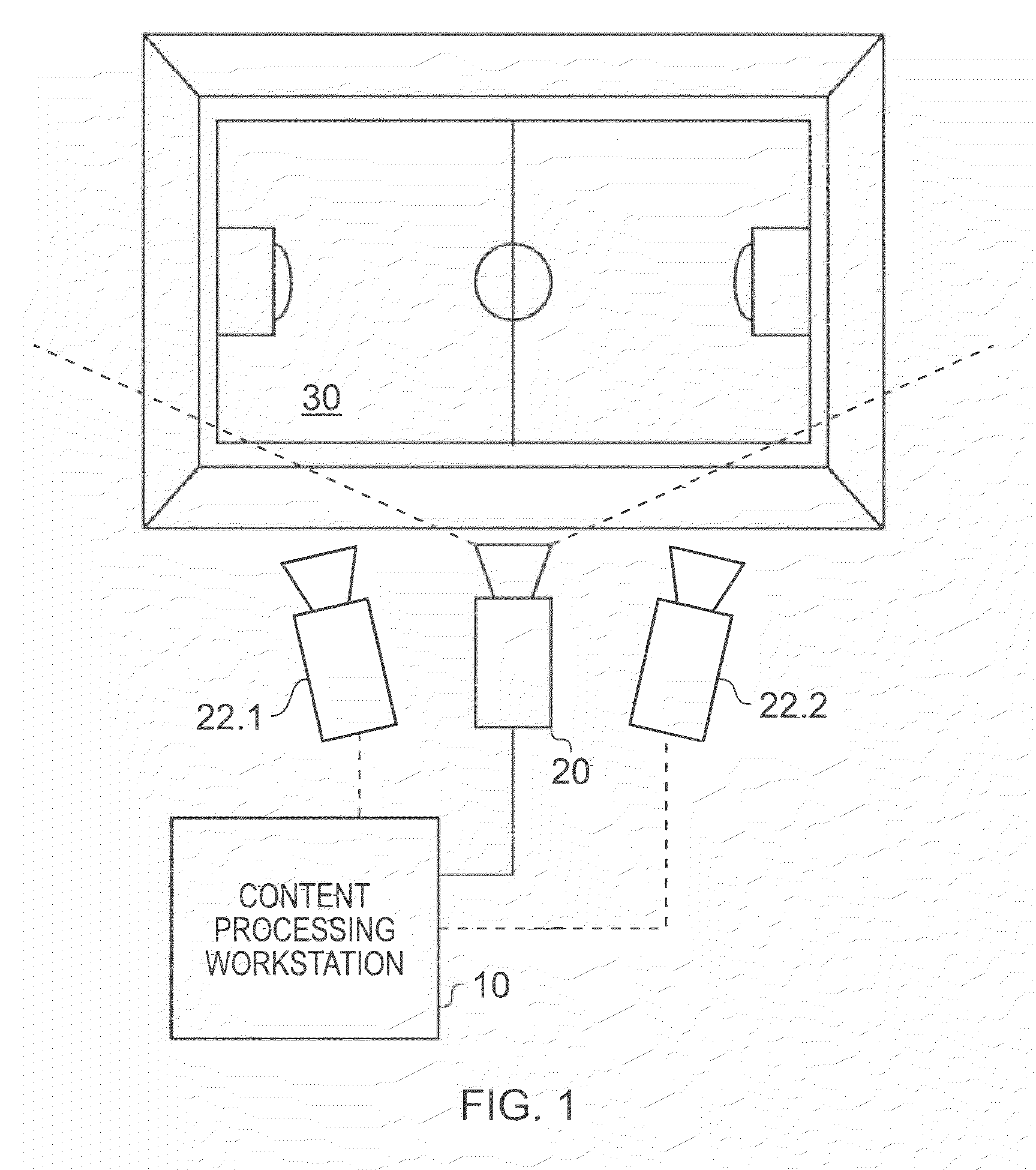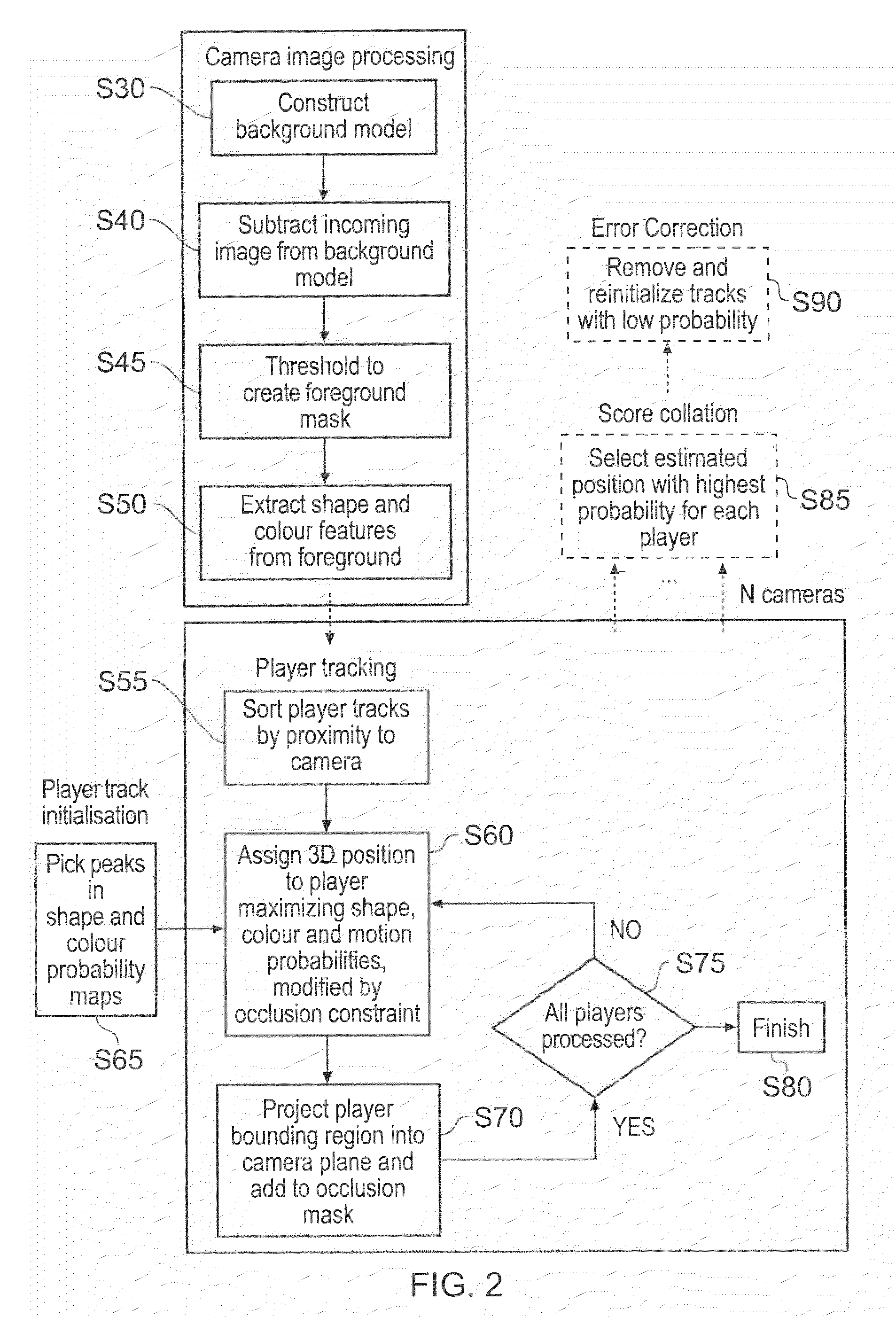Apparatus and method of object tracking
a technology of object tracking and apparatus, applied in the field of apparatus and method of object tracking, sports broadcasting, can solve problems such as ambiguity, and achieve the effect of reducing the cost and labor involved in marking up video footage to generate match statistics
- Summary
- Abstract
- Description
- Claims
- Application Information
AI Technical Summary
Benefits of technology
Problems solved by technology
Method used
Image
Examples
example illustration
[0107]FIGS. 10, 11A, 11B and 12 provide example illustrations of frames of example video images of a football match in which the present technique has been used to track players and produce a 3D model of the football match as a virtual model. FIG. 10 provides an example illustration of a video image produced by one HD camera of a football match. FIG. 11A provides an illustration of the video image of FIG. 9 in which the image has been processed to produce the background only using the mean value of each pixel, and FIG. 11B provides an illustration of the video image of FIG. 9 in which the image has been processed to produce the background only using the variance of each pixel in the image. FIG. 12 provides an illustration of a result of the tracking which is to provide a bounded box around each player in correspondence with the example shown in FIG. 3A.
[0108]FIG. 13 provides a corresponding illustration in which two cameras have been used (such as the cameras 22.1, 22.2) to generate...
PUM
 Login to View More
Login to View More Abstract
Description
Claims
Application Information
 Login to View More
Login to View More - R&D
- Intellectual Property
- Life Sciences
- Materials
- Tech Scout
- Unparalleled Data Quality
- Higher Quality Content
- 60% Fewer Hallucinations
Browse by: Latest US Patents, China's latest patents, Technical Efficacy Thesaurus, Application Domain, Technology Topic, Popular Technical Reports.
© 2025 PatSnap. All rights reserved.Legal|Privacy policy|Modern Slavery Act Transparency Statement|Sitemap|About US| Contact US: help@patsnap.com



